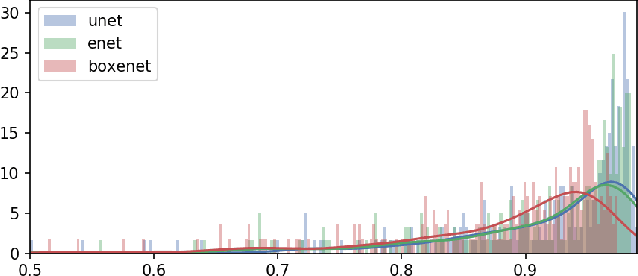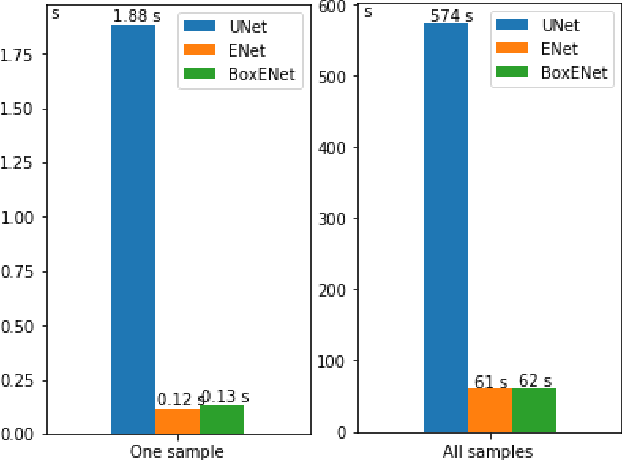Comparison of UNet, ENet, and BoxENet for Segmentation of Mast Cells in Scans of Histological Slices
Paper and Code
Oct 15, 2019



Deep neural networks show high accuracy in theproblem of semantic and instance segmentation of biomedicaldata. However, this approach is computationally expensive. Thecomputational cost may be reduced with network simplificationafter training or choosing the proper architecture, which providessegmentation with less accuracy but does it much faster. In thepresent study, we analyzed the accuracy and performance ofUNet and ENet architectures for the problem of semantic imagesegmentation. In addition, we investigated the ENet architecture by replacing of some convolution layers with box-convolutionlayers. The analysis performed on the original dataset consisted of histology slices with mast cells. These cells provide a region forsegmentation with different types of borders, which vary fromclearly visible to ragged. ENet was less accurate than UNet byonly about 1-2%, but ENet performance was 8-15 times faster than UNet one.
 Add to Chrome
Add to Chrome Add to Firefox
Add to Firefox Add to Edge
Add to Edge